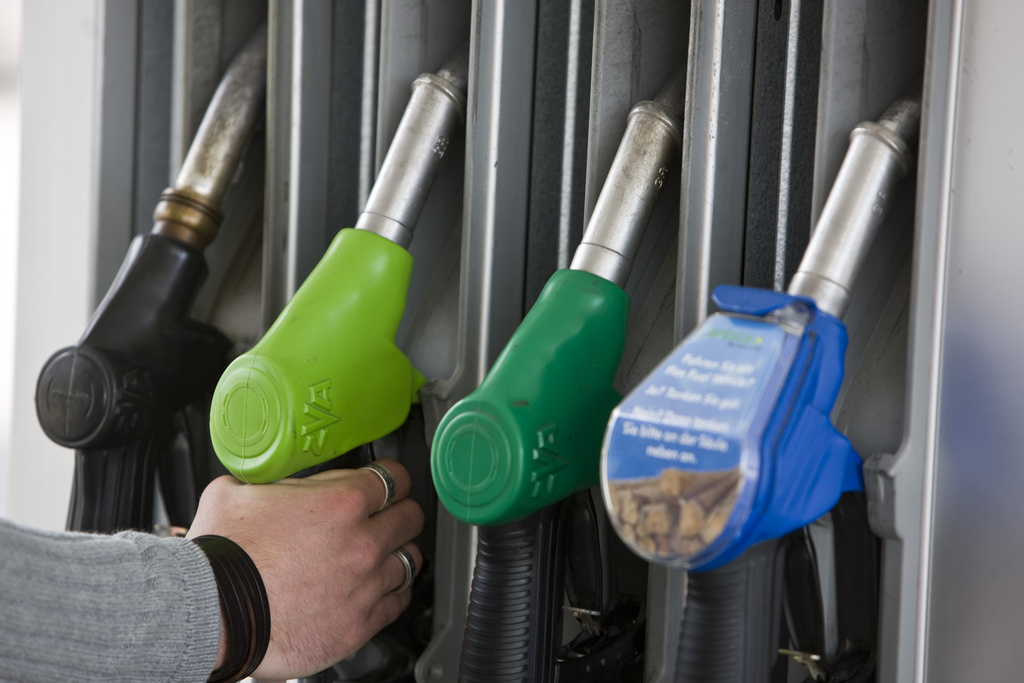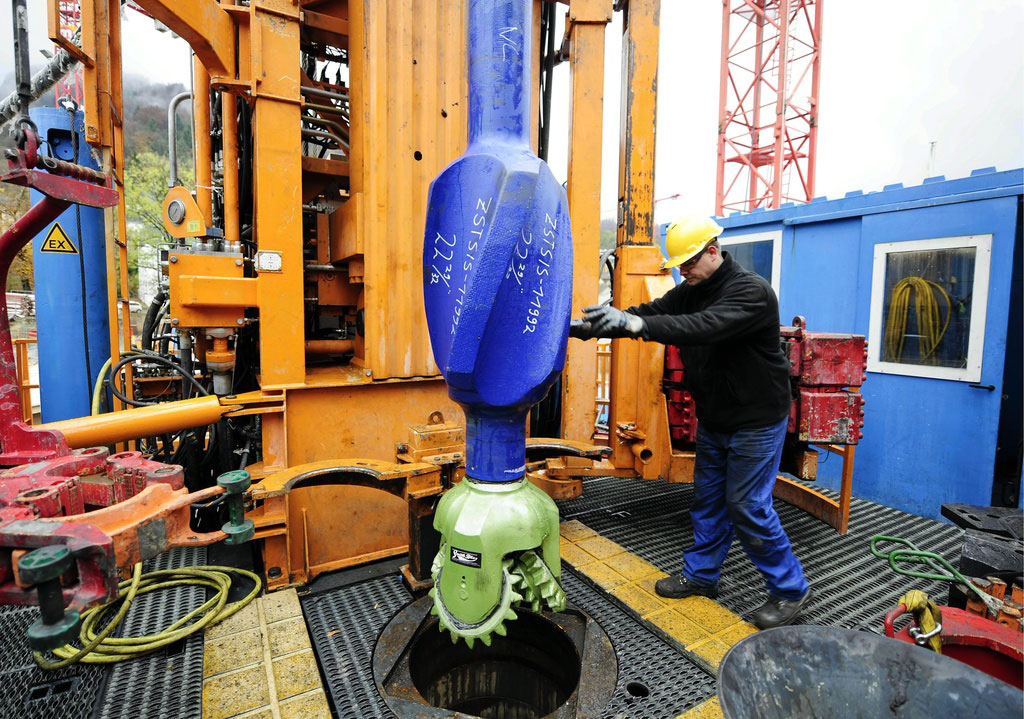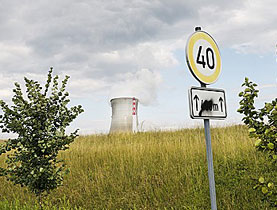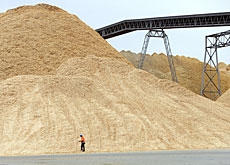New biodiesel factory fuels energy debate

The go ahead to build a biodiesel processing plant in Switzerland has once again put the spotlight on the potential – and controversy – of growing crops for fuel.
The company, Green Bio Fuel, has received permission from authorities in canton Aargau to build a factory that could generate enough biodiesel to help Switzerland meet its target of reducing carbon dioxide emissions to ten per cent of 1990 levels.
The facility will have the capacity to produce 130 million litres of biodiesel a year, which amounts to five per cent of Switzerland’s current demand for diesel fuel.
This, according to the Federal Energy Office, would be enough to put Switzerland in line with its Kyoto CO2 emission promises.
Green Bio Fuel says the diesel will be produced solely from the oil squeezed out of jatropha seeds imported from Mozambique.
Company spokesman Ulrich Frei told swissinfo.ch that Green Bio Fuel sees great potential for jatropha, a hardy tropical plant already harvested intensively in Brazil, India and the Philippines to make biodiesel.
“We believe that a global market will develop,” Frei said. “Social and ecological criteria will be used as the benchmark, for example, to ensure the growing of jatropha doesn’t compete with food crops and that land is not taken from people to plant it.”
However, Frei admitted that the building permit was only a first step on the long road to turning a profit from the production of biodiesel.
Fuel tax
The company is banking on the biodiesel it produces being freed from the federal fuel tax of SFr0.72 ($0.70) a litre, which currently amounts to nearly half the price at the pump. Without this exemption, Frei said, biodiesel cannot be competitive.
And there is no certainty the company will receive the exemption. The Federal Customs Administration will wait until the facility, to be built on the banks of the Rhine River, is operational before pronouncing on its eligibility for the tax break.
It will base its decision on audits provided by other government departments, which will investigate whether the growing of jatropha in Mozambique for biofuel production meets ecological and social standards.
“This is a very big hurdle,” Bruno Guggisberg, a biofuels expert at the Federal Energy Office, told swissinfo.ch.
At the moment, federal authorities recognise 48 demonstration and pilot facilities of biofuel firms, which either produce biodiesel or biogas – the latter considered the cleanest since its raw material is organic matter like manure and sewage.
Little demand
But since July 2008, when biofuels meeting the social and ecological standards were freed from fuel tax, the market has actually shrunk. It is estimated that only around three million litres of biodiesel were sold in Switzerland last year – a quarter of the 2008 figure.
The Energy Office says the figures reflect the fact that Swiss consumers are more influenced by price than environmental aspects. In 2009 the price of oil was at one point less than half its 2008 record high of $147 a barrel.
“The entire price structure – that of raw materials and oil – is decisive,” Guggisberg explained.
Another potential spanner in the less-than-well-oiled biofuel works is an initiative in parliament by Social Democrat energy expert Rudolf Rechtsteiner to place a five-year moratorium on the import of biofuels.
Rechtsteiner is supported by a coalition of non-governmental aid agencies, who counter the Green Bio Fuels claim that growing jatropha for biofuels will not do any social or ecological damage.
According to the NGO Swissaid, “the prospect of making profit from palm oil or jatropha seeds diesel is enticing international corporations and investors onto the land,” which it says drives away poor farmers.
If biofuels are to have a future in Switzerland, biogas seems to have the greatest potential.
Guggisberg says domestic production of energy from biomass could cover approximately ten per cent of Switzerland’s current energy needs, providing that all of the waste products from the food industry and agriculture, as well as from forestry, were converted into fuel.
Dale Bechtel, swissinfo.ch
The Swiss government published a study into the environmental impacts of biofuels in 2007.
Researchers investigated the following alternative fuels: bioethanol, biomethanol, biodiesel and biogas. They also took into account the entire production cycle.
The authors found that while it was true biofuels emit up to a third less carbon dioxide than petrol and diesel when consumed, producing them was generally more stressful on the environment.
They said that the growing and processing of crops can have the heaviest environmental impact, as soil quality can be affected adversely, such as through fertiliser overuse.
In tropical countries, slashing and burning, used to clear land for crop production, resulted in copious amounts of carbon dioxide being released into the air.
Among the different biofuels, using waste products, ranging from grass to wood, presented the most environmentally friendly option for replacing fossil fuels, the researchers declared.
Less than half of the world’s harvests are directly used for human consumption: 700 million tons are used for animal feed and 100 million tons are transformed into biofuels.
In Switzerland, biofuels represent 0.2 per cent of general fuel consumption. They cover 1.5 per cent of global needs.
The European Union is the largest producer and consumer of biodiesel. The diesel made from rapeseed, soya and palm nut provides two per cent of its needs. The EU aims to increase this to ten per cent by 2020. That is the equivalent of 19 per cent of the global production of oil-producing plants.

In compliance with the JTI standards
More: SWI swissinfo.ch certified by the Journalism Trust Initiative






You can find an overview of ongoing debates with our journalists here. Please join us!
If you want to start a conversation about a topic raised in this article or want to report factual errors, email us at english@swissinfo.ch.